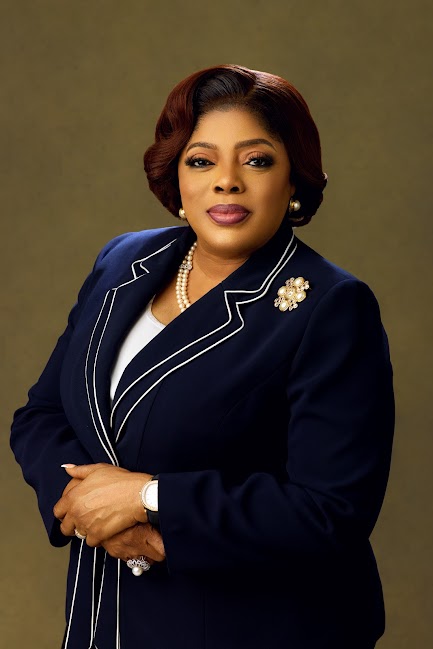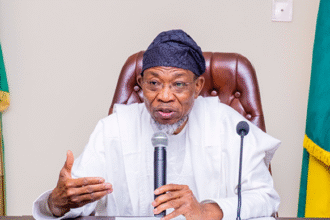...To get all news updates, Join our WhatsApp Group (Click Here)
Also Join our WhatsApp Channel (Click Here)
Highly-rated, independent investment advisory firms have picked Fidelity Bank as a very attractive stock with potential to generate high returns for investors.
Independent investment research reports by many market pundits reviewed at the weekend showed that Fidelity Bank was assigned “buy” ticker, a recommendation to investors to consider the potential attractive returns of the bank.
The research reports were based on the historical and current operational performances of the bank as well as the clear-sighted implementation of the bank’s growth plan. The reports also considered the quality of board and management and the general human capital and resources of the bank.
The investment advisory reports included those of Afrinvest Group, FSDH Capital and CardinalStone among others.
Analysts were unanimous that Fidelity Bank’s share price could double in the period ahead given professional assessment of top traditional performance parameters including the company’s operational reports, investors’ preference and projections.
CardinalStone stated that Fidelity Bank’s share price could double citing the bank’s “robust earnings growth” and the increasing profitability of its core banking operations.
After an extensive review of the global and domestic stock markets, FSDH Capital selected Fidelity Bank as one of the “FSDH Top Picks”, a group of stocks that the investment advisory firm considered to be most attractive for discerning investors. FSDH Capital’s stock selection considered a stock’s pricing history, dividend history, fundamental values and peer ratios among others.
Providing background on analysts’ exhaustive research for stock selection, Afrinvest explained that the company’s fair value estimate “takes into account a weighted average of price estimates derived from a blend of valuation methodologies including the Discounted Cash Flow (DCF) and its variants as well as other relative and comparable trading multiples valuation models”.
“However, we attach the most weight to DCF valuation methodology, particularly the Dividend Discount Model (DDM), Free Cash Flow (FCF) model and Residual Income Valuation/Model (RIV/RIM). The utilization of comparable trading multiples is guided by the analysts’ understanding of the banks’ fundamentals, as well as key price drivers from the firm, industry and macroeconomic perspectives,” Afrinvest stated.
The “buy” rating, according to analysts, implies that “the expected total return over the next 12 months is 25 per cent or more. Investors are advised to take positions at the prevailing market price as at the report date”.
Afrinvest projected that Fidelity Bank, with a dividend yield of 9.3 per cent, has price upside potential of more than 35 per cent. This effectively makes the stock an inflation-hedging stock, implying that investors in the bank’s shares can retain money value despite the current inflationary environment.
Futureview Group said Fidelity Bank’s recent operational reports highlighted the bank’s “excellent operational performance and the breadth of its income sources”.
The audited report and accounts of Fidelity Bank for the year ended December 31, 2023 had shown that gross earnings rose by 65 per cent to N555.83 billion. The top-line performance was driven by significant growths across income lines including 55 per cent growth in interest income, 562 per cent increase in other operating income and 44 per cent growth in fee and commission income.
The bottom-line fared better with net profit after tax rising by 99 per cent to N99.46 billion in 2023. Earnings per share (EPS) thus jumped by 93 per cent to N3.11, providing a strong buffer for the bank to increase dividend payout without undermining its sustainability.
Interim report and account of the bank for the first quarter ended March 31, 2024 also showed that the bank started the current business year on stronger footing with three-digit growths across key performance indicators.
The three-month report, released at the Nigerian Exchange (NGX), showed that gross earnings increased by 89.9 per cent to N192.1 billion in first quarter 2024. The bank’s top-line performance continued to be driven by broad-based growths across income lines with interest income rising by 90.7 per cent and non-interest income growing by 84 per cent in first quarter 2024.
Growth in interest income was primarily spurred by a higher yield environment and strong earning assets base, while the increase in non-interest income was led by double-digit growth in account maintenance charges, foreign exchange (forex)-related income, trade, banking services, and remittances, supported by increased customer transactions.
Profit before tax doubled by 120 per cent to N39.5 billion in first quarter 2024 as against N17.9 billion in first quarter 2023. The bank’s performance was driven by expanding market share with total deposit rising by 17 per cent within the three months to N4.7 trillion, compared with N4 trillion recorded at the end of 2023. The bank also increased its supports for national economic growth with net loans and advances rising by 21 per cent from N3.1 trillion at the end of 2023 to N3.7 trillion by March 2024.
Managing Director, Fidelity Bank Plc, Nneka Onyeali-Ikpe said the bank’s performance was due to its strategic focus on customer-centricity, digital innovation and operational excellence.
“Despite the challenging macroeconomic environment, we remained resilient and agile, delivering double-digit growth on key income lines while advancing our business sustainability agenda.
“Beginning the year on this inspiring note reaffirms our strategy of helping individuals to grow, inspiring businesses to thrive and empowering economies to prosper. We are committed to our guidance as we build a more resilient business franchise with a well-diversified earnings base in 2024,” Onyeali-Ikpe said.
Ranked as one of the best banks in Nigeria, Fidelity Bank is a full-fledged customer commercial bank with over 8.5 million customers serviced across its 251 business offices in Nigeria and the United Kingdom as well as on digital banking channels.
The bank has won multiple local and international awards including the Export Finance Bank of the Year at the 2023 BusinessDay Banks and Other Financial Institutions (BAFI) Awards, the Best Payment Solution Provider Nigeria 2023 and Best SME Bank Nigeria 2022 by the Global Banking and Finance Awards; Best Bank for SMEs in Nigeria by the Euromoney Awards for Excellence 2023; and Best Domestic Private Bank in Nigeria by the Euromoney Global Private Banking Awards 2023.
You can get every of our news as soon as they drop on WhatsApp ...To get all news updates, Join our WhatsApp Group (Click Here)
Also Join our WhatsApp Channel (Click Here)












